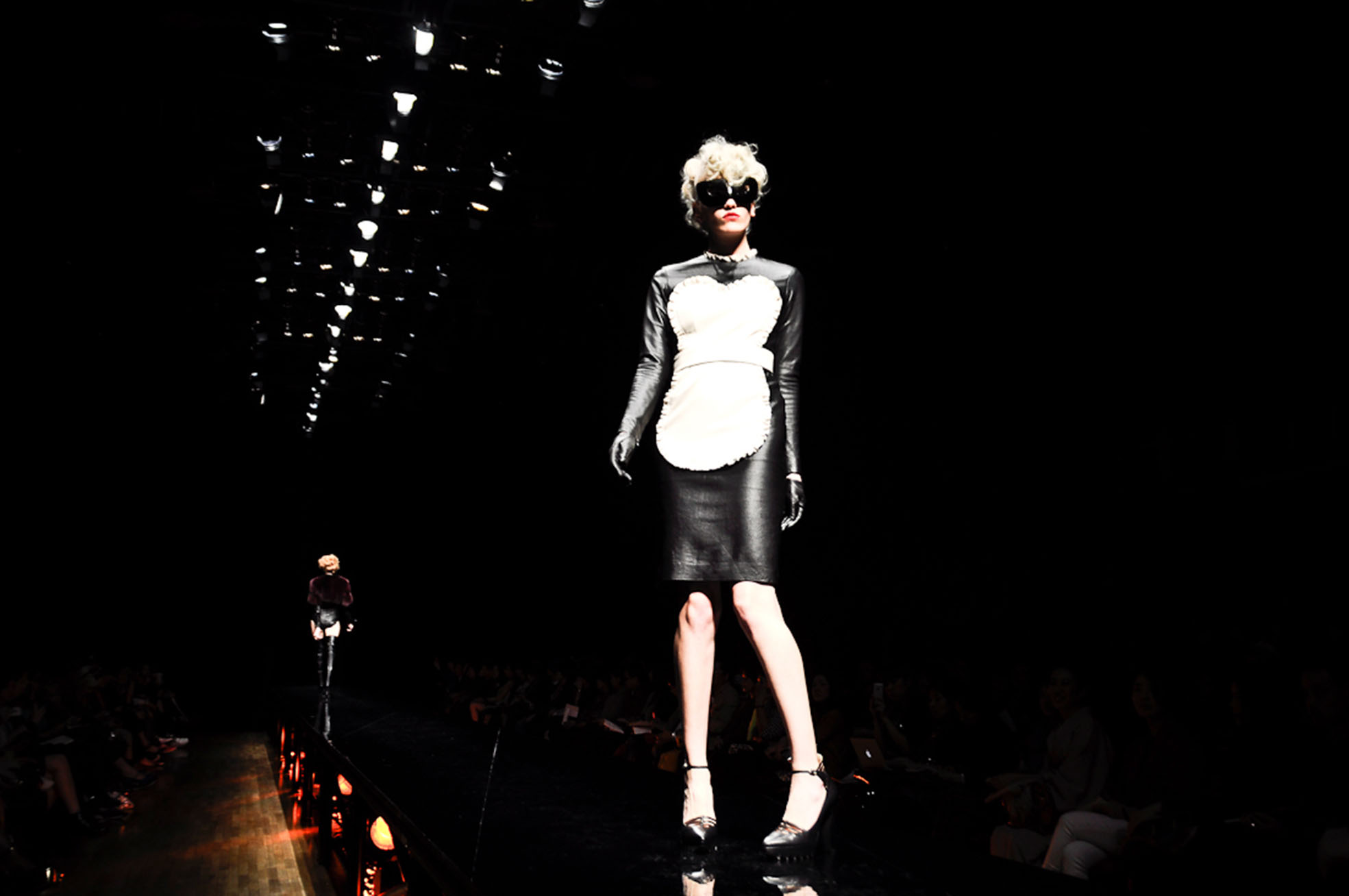As Toyoko-Fukutoshin trains began breezing beneath shopping-mecca Shibuya last week, for the first time linking Tokyo's outlying northern satellites and Yokohama to the south without any need for changes, up above it in the glitzy new Hikarie building models bowled down the catwalk for the 2013 autumn/winter showing of Mercedes-Benz Fashion Week Tokyo.
It is four seasons since the German car-maker became FWT's main sponsor — adding Tokyo to its collection of global fashion weeks that include New York City and Berlin — and in that time it has given the industry segment that relies on these twice-yearly events a real confidence boost. Consequently, where the formerly state-funded showpieces suffered from poorly delivered financial support and a weak image, Mercedes-Benz FWT now graces the upper echelons of the global fashion community.
All in all this season, 37 brands held official runway shows that attracted 22,000 attendees from March 17-23 — although you wouldn't find internationally renowned labels like Issey Miyake and Yohji Yamamoto among them. Instead, locally established brands such as trendy G.V.G.V. or avant-garde Christian Dada grabbed the limelight, having managed to make ripples within the fashion elite at home and abroad.


















With your current subscription plan you can comment on stories. However, before writing your first comment, please create a display name in the Profile section of your subscriber account page.